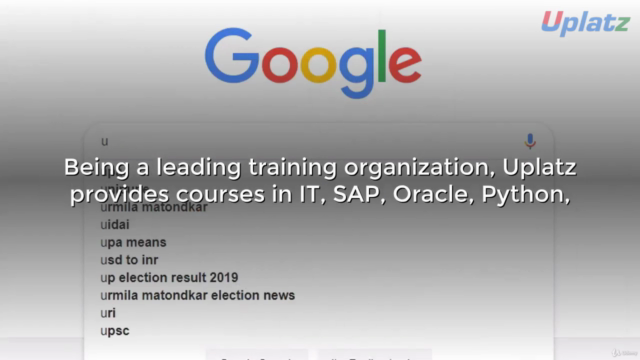SAP Finance and Controlling (FICO) (beginner to expert)

Why take this course?
Based on the comprehensive list of topics you've provided, it seems you are preparing for an SAP FI/CO (Financial Accounting/Controlling) certification or a similar extensive SAP module training. These units cover a wide range of functionalities within SAP FI/CO, including both transactional and configurational aspects. Here's a brief overview of what each unit generally entails:
-
SAP FI (Financial Accounting):
- Accounting and Closing: Understanding the accounting processes, general ledger accounting, financial statement periods, closing procedures, and reconciliation.
- Order to Cash (O2C): Managing sales orders, deliveries, invoicing, customer payments, and credit management.
- Purchasing to Pay (P2P): Handling purchase orders, goods receipt, invoice verification, vendor payments, and accounts payable.
- Internal Reconciliation: Matching purchase orders with goods receipt and invoices, managing clearing entries, and ensuring the integrity of financial transactions.
- Stocks and Inventory Management: Managing inventory levels, performing physical inventory counts, and understanding stock valuation methods.
- Taxation (VAT/Sales Tax): Understanding the tax procedures, output tax deductions, and handling of input tax.
- Integration with Other Modules: Knowing how FI interacts with other SAP modules like SD (Sales and Distribution), MM (Materials Management), and banking modules.
- Real Time Data Documentation: Creating business blueprint, estimates, high-level designs, functional specifications, test scripts, and executing UAT (User Acceptance Testing).
-
SAP CO (Controlling):
- Cost Accounting: Understanding the structure of cost centers, profit centers, and organizational units, assigning cost types, and performing cost reconciliation.
- Budgeting and Forecasting: Setting up budget planning, variance analysis, forecasting procedures, and follow-ups on actual vs. planned values.
- Internal Reporting: Creating internal reports, variances reports, and understanding the structure of the controlling area.
- External Reporting: Handling external financial reporting requirements, such as balance sheet and P&L statement.
- Profitability Analysis (CO-CUB/CO-PA): Analyzing profitability at various levels, product, customer, sales organization, and distribution channel.
- Investment Management: Managing capital investments, performing appraisal and depreciation accounting for assets, and handling impairments.
- Risk Management (CO-KS): Identifying key figures for risk management and setting up risk profiles.
- Full Costing: Understanding how to calculate the full cost of products or services and using this information for decision making.
- Integration with Other Modules: Ensuring data consistency between FI, MM, and other modules like PP (Production Planning), SD, and HCM (Human Capital Management).
-
SAP FI/CO Integration:
- Real-time Data Transfer: Understanding how data is exchanged between FI and CO in real time, including the impact of transactions in one module on the other.
- Cross-module Processes: Recognizing processes that span both financial accounting and controlling, such as capital expenditure management or valuation of inventory.
-
SAP FI/CO Configuration and Customization:
- Customizing Transactions: Setting up and customizing SAP transactions to meet the specific needs of the organization.
- Master Data Maintenance: Ensuring that master data is accurate and complete for all relevant modules.
- Business Process Flows: Understanding and configuring the flow of business processes across FI and CO modules.
-
SAP FI/CO Best Practices and Methodologies:
- ASAP Implementation Methodology: Following a structured approach to SAP implementation, such as ASAP (Accelerated SAP), to ensure timely and efficient project delivery.
- Best Practices: Adopting industry-proven best practices for both financial accounting and controlling processes to improve efficiency and accuracy.
The units you've listed are critical for anyone aiming to become an SAP FI/CO consultant or auditor, as they cover the essential knowledge areas required to design, implement, maintain, and optimize SAP systems within these modules. It's a comprehensive list that reflects the depth and breadth of knowledge expected from professionals in this field.
Course Gallery




Loading charts...